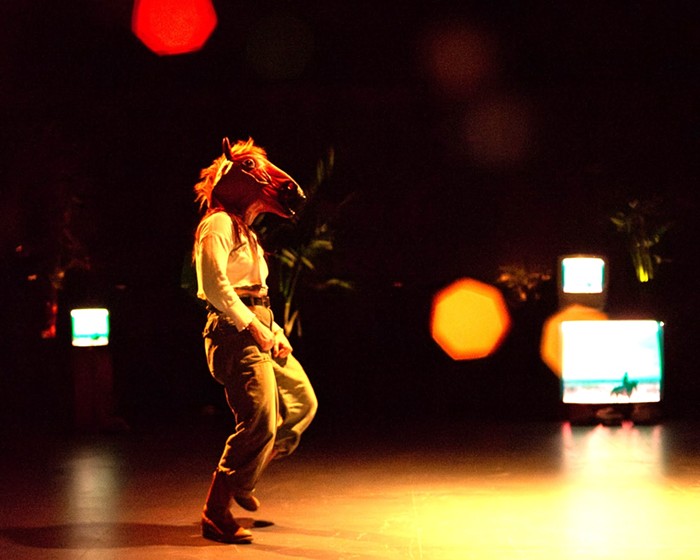904 SW Main St. 790-2787
$24.50-$29.50
Late Nite Catechism is a mildly amusing evening at the theater, but this one person, two-act play also highlights all the things wrong with one-person shows and religious or political satire on the stage. What's more, in the end the play is bold-faced Catholic propaganda.
Of course the show doesn't start out seeming like propaganda. Instead, Maripat Donovan and Vicki Quade's play, currently enacted in Portland by Tina Paradiso under the direction of Patrick Trettenero, comes across as the kind of gentle ribbing that is designed to allow actual Catholics to gently double over in soft laughter (or hold their hands sheepishly before their eyes in quiet, embarrassed remembrance of their Catholic childhoods). Eventually, however, the less committed spectator realizes that beneath the surface, this satire is an assumption of the rightness of Catholicism, especially pre-Vatican II Catholicism. The Life of Brian, this ain't.
Nor is it Christopher Durang's Sister Mary Ignatius Explains it All For You. There's not much of an edge here. The premise of the play is that an unnamed Sister is leading a class of adults in a refresher course in the catechism. As this is an "interactive" play, the audience is also the class, and Sister calls upon "students" to stand up and answer questions about Catholic theology. Sister teases and reprimands the "students," while also expressing wistful fondness for the days before Vatican II modernized the church.
She takes us on a tour of her favorite saints, and explains some of the more counter-intuitive aspects of Catholicism, such as the Holy Trinity. Her discussions of such theology are quite serious, and not at all meant to mock or provoke. Sister is not a nightmarish prude, a ruler-wielding crone who enjoys exerting power over the helpless. Except for a few allusions to punishments she has had to administer in the past, she is a gentle soul who takes her religion seriously. Too seriously. For a play like this to work, the actor has to be the straightforward person presented on the surface of the text, yet be able to slip into the unrealistic alternative person who is also present, the exaggerated creature who is ultimately the butt of a play's jokes. The writing has to walk the edge of satire without slipping into either obviousness, or the kind of bifurcation that neutralizes the play's disparity between what it is saying and what it is showing.
Late Nite Catechism might have been successful if it really existed to mock rather than celebrate. But old jokes, such as the Sister telling us that she is taping Baywatch at home, don't wash; you instantly ask yourself what kind of program, if any, would it be funny for a nun go to the trouble of taping? In any case, bad jokes only serve to snap us out of the moment and reflect on the dubious artistry of the one person format.
It is only at the end that the play's ultimate propagandistic elements unabashedly emerge. This is when Sister steps out of character to solicit donations for an actual institution dedicated to the well-being of nuns. Noble as this gesture may be, it finally confirms what has been implicit in the play from the beginning, that the authors wish to reassure rather than challenge us. Late Nite Catechism isn't a hellish theatrical experience, but it could have used a lot more fire and brimstone.


















